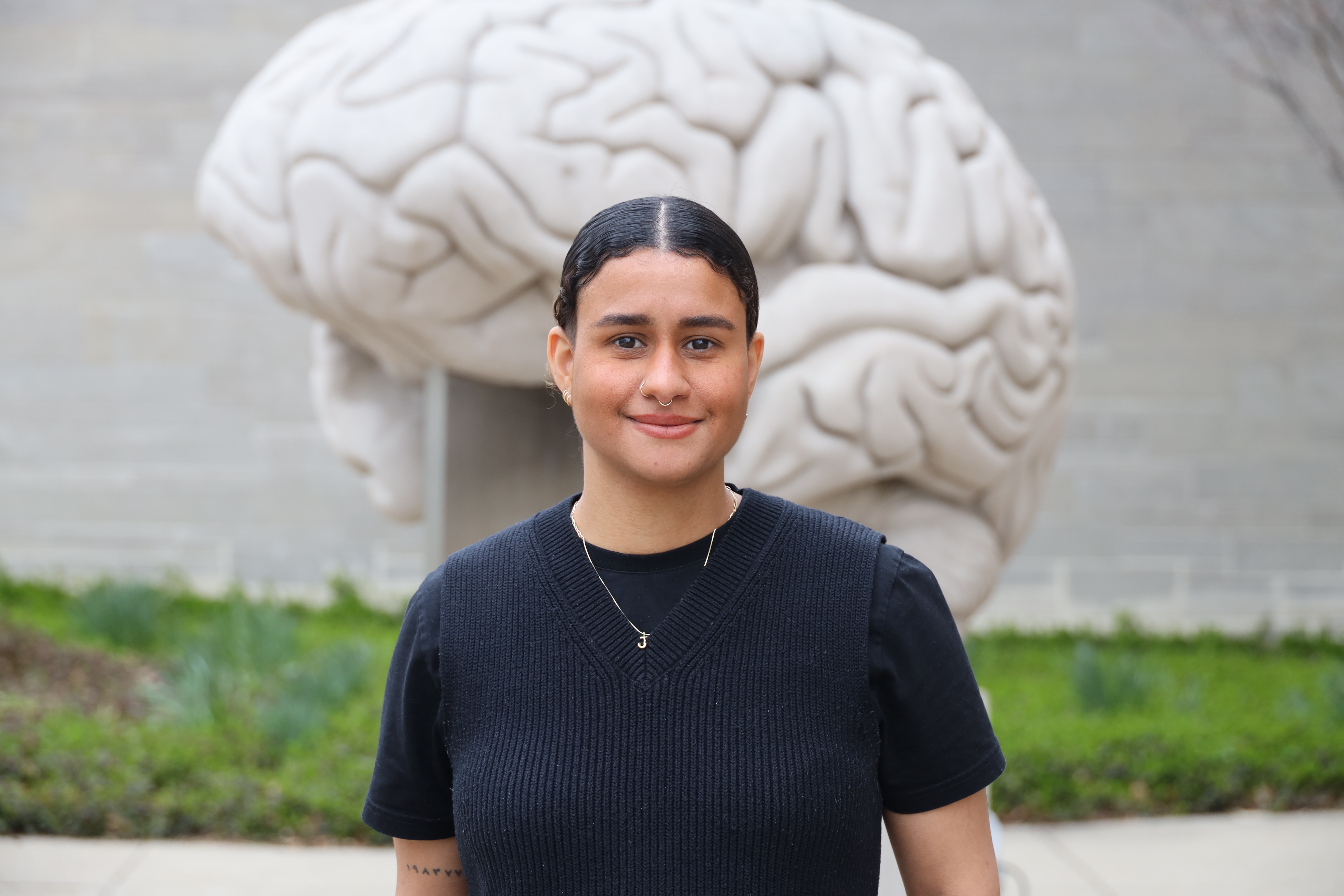With a Fulbright to study in Paris, PBS graduate student J Wolny seeks to shed light on a highly concerning global trend in the diagnosis of schizophrenia and other psychotic disorders: That the rates of diagnosis among African migrants in France are three to four times that of its native citizens. A parallel disparity, that Wolny also studies, exists in the U.S. between Black and White Americans. While the causes of these disparities are little understood, evidence points to social and cultural factors as well as the quality of the assessment tools used to diagnose such conditions, consisting of patient surveys and questionnaires.
Wolny was traveling in France last summer, when they met with a researcher, Dr. Andrea Tortelli, a psychiatrist with a clinic dedicated to asylum seekers and refugees, whose work on migrant mental health Wolny has long admired. “I was curious to chat with her,” says Wolny. “We had some great conversations and that led to the application.”
As someone who grew up as an American expatriate in Saudi Arabia and as the child of a Black American mother and Polish immigrant father, Wolny has a strong interest in how race, culture and ethnicity intersect with and impact mental health. More specifically, Wolny, who is a student in the lab of PBS Provost Professor Bill Hetrick, is interested in exploring whether racial biases exist in current assessment tools, as well as the social and cultural factors that contribute to psychotic experiences and disorders.
Wolny’s project has two parts. First, they will study the current questionnaire used to diagnose psychosis, to assess its sensitivity and relevance to the circumstances and culture of Black migrants. As Wolny explains, the French questionnaires are often developed in the U.S. and tested on mostly White, college-age study participants. As a result, their relevance to the circumstances of French African migrants is open to question.
For example, to ask people of color who are frequently subject to heightened suspicion and discrimination whether they often feel that other people are taking notice of them while shopping or that others “have it in for” them fails to recognize the very real social experiences that give rise to such beliefs. When people of color endorse these questions on mental health assessments, it might not indicate clinical paranoia or a break from reality, but rather, a well-founded recognition of the social conditions they face. In place of these socially misconstrued questions, Wolny hopes this work will set the stage for “more culturally informed and comprehensive guidelines for evaluating psychotic experiences in French African migrants.”
Next, Wolny will explore the social and cultural factors contributing to psychotic experiences, such as how the life experiences, social adversity, isolation, and discrimination might lead to heightened psychotic experiences in French African migrants. To pursue these issues, Wolny will have access to a remarkable dataset drawn from approximately 1,000 French migrants and made possible by the work of her colleague, Dr. Tortelli and France’s universal healthcare system.
Wolny sees the upcoming voyage as an opportunity to broaden their perspective on mental health: “I’m really excited to compare American and French views on mental health and how they might diverge. This will better inform the work I do in the future.”
And on a personal level, they are excited to engage with the community. “I’m hoping to build community and do things I do here in the French context – like play soccer and skate, cook with friends, and just explore the city.”
For all of these opportunities, Wolny is especially grateful to Hetrick, their advisor and mentor, without whom the Fulbright would not have happened. “He’s been a huge support from the time I started graduate school,” says Wolny. “He’s the type of advisor who will do everything possible to support his students’ ambitions.”
For Wolny, those ambitions are remarkably clear: “To advance mental health equity for racial and ethnic minorities and improve mental health for my community, whether in the U.S., France, or somewhere else fun and exciting.”



 The College of Arts
The College of Arts